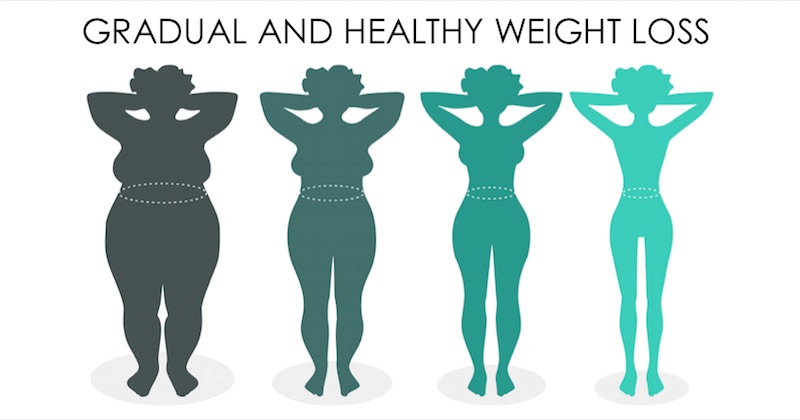10 Ways To Naturally Remedy Slow Metabolism For Safe, Healthy And Effective Weight Loss
Last updated on
You’re eating healthy, exercising 4 times a week, and you’ve even given up sodas, chips, or fast food, but still aren’t seeing results? You’re doing everything right or at least you think you are … what gives? Lack of results is a classic sign of a slow metabolism.
If you’ve ever gone on a diet, been overly stressed, cut calories, went on a workout binge, or taken metabolism boosting supplements you probably have a slow metabolism. That’s the bad news. The good news is your metabolism can easily be fixed using the 10 tips I’ll be sharing in this short article.
10 Tips To Naturally Remedy Slow Metabolism
Think of this article as the beginning stages of a much needed metabolic makeover, since most transformation starts with an awareness of a problem.
1. Stop Dieting
Crash diets, diet pills, and lose-weight-quick fixes might give you fast results, but all they’re really doing is slowly, but surely slowing down your metabolism. Fad diets are much more detrimental to your health and body than losing weight at a slower, but more consistent pace. Plus, you’ll actually keep the weight off doing it the right way.
2. Avoid Refined Sugars And Artificial Sweeteners
Having loads of sugar floating around in your blood stream created a vicious cycle of hormonal imbalances. You want your body to be running as efficiently as possible—so stop justifying your daily doses of sweets. And no, artificial sweeteners shouldn’t replace sugars and high-fructose corn syrup, since it’s scientifically proven they contribute to biochemical imbalances.
3. Skip Cardio And Start Metabolic Workouts
Cardio can contribute to excess cortisol, which leads to muscle loss and lowered thyroid function. If your goal is to build fat-burning lean muscle and burn more calories than running for 30 minutes on a treadmill, then a metabolic resistance training exercise program is perfect for you. Try these 8 fat-torching metabolic workouts you can do at home.
 4. Practice Mindful Breathing
4. Practice Mindful Breathing
Stress is a metabolism killer. The hormonal and biochemical consequence of chronic stress leads to adrenal fatigue, decreased thyroid function, poor digestion, and loss of muscle mass.
This is a recipe for a slow and sluggish metabolism. Find 10 minutes a day to take a few deep diaphragmatic breaths, relax, and watch your stressors float away.
5. Avoid “Fake” Foods
Some of the best advice I give my clients is to try to eat real food. This means trying to eat as organic as possible most of the time, but not obsessing about ONLY eating organic, since that’s next to impossible. Additives, preservatives, and chemicals can significantly slow down your metabolic rate, by overloading your liver with toxins.
 6. Get Some Sleep
6. Get Some Sleep
That “running on empty” feeling you have when you haven’t had enough rest is exactly how your metabolism is functioning. Catching some high quality sleep could help you reboot your metabolism.
Lack of sleep can literally break your fat-loss efforts, because even just one bad night of sleep has significant hormonal consequences. Shoot for 7-8 hours of sleep every night from the hours of 10 PM to 6 AM.
7. Eat More Fat
Of course, the disclaimer on this tip is that the type of fat matters. Most people would think either, fat isn’t healthy or they would think something like vegetable oils are the healthiest fat, both would be wrong. We need to start eating more saturated and monounsaturated fats in our diet and avoid polyunsaturated fats. Saturated fats can boost your metabolism by cleansing the liver, boosting thyroid hormone, and promoting energy metabolism.
 8. Drink More Water
8. Drink More Water
This is probably the most generic tip on this list, because I know you hear this one all of the time. Drinking sufficient water daily is the easiest way to guarantee you that your detoxification organs are hydrated sufficiently for optimal function.
To take things a step further and to increase absorption, add a pinch of sea salt or Himalayan salt to your water.
9. Limit Your Carbs On Low Activity Days
The more you exercise, the more carbs you can “afford” to eat. Carbs are FUEL for our bodies, so they give you energy for exercise and your metabolic processes, but, if you’re inactive on a certain day but decide to eat a gluten-free sandwich for lunch, a bunch of fruit for a snack, then sweet potatoes for dinner, that’s A LOT of carbs for a day that you don’t exercise.
An “eating day” would be more appropriate if included a workout session. Eat a lower carb diet on days that you’re resting or planning to skip a workout session.
I’m not saying to avoid carbs at all time, or eat all the carbs on workout days, I’m saying carbs are energy. You need them, but you don’t need a lot of them. You need less on low-energy days (no exercise) and more on high-energy days (exercise).
10. Stay Consistent
This one might throw you for a loop, but it’s probably the most important “tip” a metabolism expert could give. I have 2 of the best metabolism boosting programs online, but they are both worthless if you don’t follow through with the program and be consistent. You might as well keep doing what you’ve always done, because if you want results you need to actually commit to a program.
Some of the links I post on this site are affiliate links. If you go through them to make a purchase, I will earn a small commission (at no additional cost to you). However, note that I’m recommending these products because of their quality and that I have good experience using them, not because of the commission to be made.


 4. Practice Mindful Breathing
4. Practice Mindful Breathing 6. Get Some Sleep
6. Get Some Sleep 8. Drink More Water
8. Drink More Water































 JOIN OVER
JOIN OVER
Comments